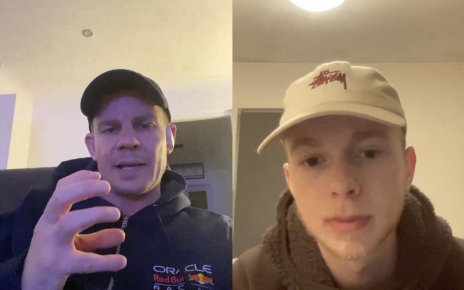
Sometimes with the grandeur and the excitement of Gloucestershire’s biggest event of the year, it’s easy to forget the backlash and protest seen by anti-horse racing activists every year at the Cheltenham Festival.
For Dene Stansall and Animal Aid, it’s not just something they restart every year, it’s an everyday campaign. Originally just involving themselves in anti-vivisection, the organisation has been a leading name in animal rights for almost 50 years.
“It was started in 1977, by a school teacher called Jean Pink, who was concerned about the treatment of animals in the UK. The campaigns grew wider and now we cover intensive farming, wildlife, veganism and horse racing.
“We started something back in 2007 called Horse Death Watch, because we were seeing that horses were dying on British race courses but nothing was being said about it.”
The website in question is very blunt in its delivery, as Horse Death Watch records the racehorse that’s passed away, the date when the injury occured, the injury itself, the trainer, the jockey and the racecourse where the incident took place.
In the 18 years since Horse Death Watch started, they’ve recorded a staggering 2,968 deaths, the most recent being an Irish horse called Cherry Brave, at Huntington Racecourse in Cambridgeshire on Sunday March 2. However Stansall admits that figure doesn’t scratch the surface.
“That’s an underestimate. Those are horses that we know have died as a result of racing on British Racecourses. That information has been used by many academics and by the media, and the general public.
“If a horse, say the public are watching on TV, or at the races, a horse may fall and die, and they may not know about it. We’re finding that a horse dies once in every two days.”
On a more wider level, Animal Aid have also campaigned in Parliament. 13 years ago Stansall spoke in the Commons about problems at the Grand National, in regards to the fences and safety for horses.
Stansall was adamant that there should be an independent welfare regulator, as he stated, “The racing industry regulates its own welfare parameters, which is highly subjective it what they deem acceptable and not acceptable.
“It should be given to an independent body, we discussed it in parliament, through a petition that we wrote that gained 105,000 signatures calling for the BHA to be moved from that welfare remit. As a consequence the Horse Welfare Board was formed.”
55,498 people made the trip to Cheltenham Racecourse on Tuesday, and although it was down nearly 5,000 people on the previous year, it shows the prominence and popularity of the event which has been taking place for 165 years. Stansall was quizzed on if Cheltenham and racecourses like Aintree can do more to raise awareness on horse welfare.
“We don’t support horse racing whatsoever and we’d like to see a ban on that but we’re pragmatic to realise that isn’t going to happen overnight. With regard to Cheltenham and Aintree, they are the two most dangerous race courses in the country.
“There’s still major work to do to make racing half acceptable, as 76 horses have died at the Cheltenham Festival since 2000. And since 2007, at other meetings at Cheltenham, we’ve recorded 128 deaths.”
Media coverage on the Cheltenham Racecourse goes into overdrive as the world’s media and various celebrities make their way to Prestbury Park. Stansall was asked if the media could do more to cover the darker side of the sport.
“We got an article in The Times recently, stating it was time to ban jump racing. Our ultimate aim is to ban jump racing in the first instance, because that kills three quarters of all horses who die on race courses. The dangers are far greater over jumps.
“We always push for that focus, a few groups push it at this time of year. There’s a big powerful input from bookmakers pushing people to have bets through advertisements in the media.
Lastly, Stansall had a message to Horse Racing fans ahead of the festival, as he stated, “Half of all the horses there will come back with some form of injury, whether its minor, major or they lose their life.
“That’s why we cannot support Horse Racing, we want to see it abolished because the industry has had many many years to get its house in order, and its failed to do so. And while its got the remit of self regulation, that will always continue in our view.” Stansall concluded.

